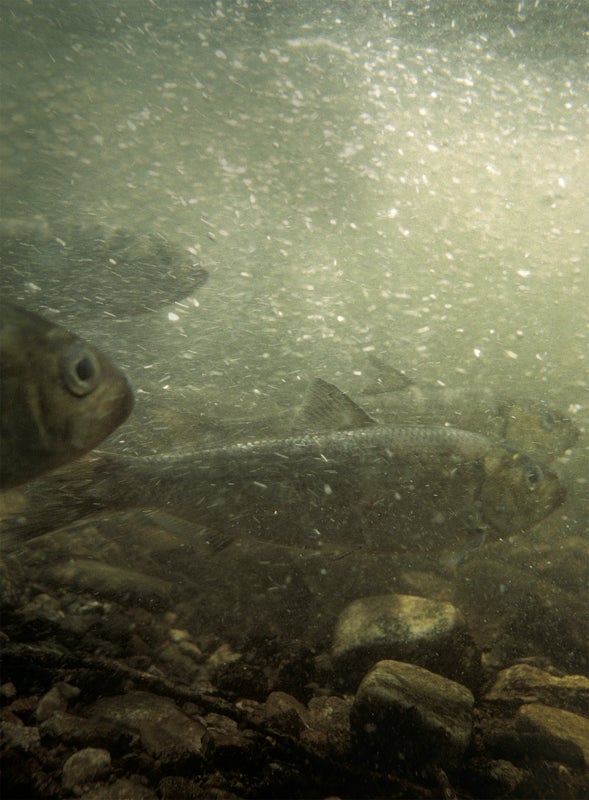Edited by Dava Sobel
The Squamscott River
grew lazy in early summer—
muskrat rose and dove
heron swept the air and landed
and hemlocks that had survived
another century's practice
of harvesting their bark
were thriving. Some suffered
beaver girdles and the predation
by woolly adelgids but still
the pileated woodpeckers
found what they required
in the snags. This is how it was
for us—pulling threads of hope
out of the air as if we had
the skill to weave them
back into webs. We surprised
ourselves when it worked—
so much needed to be undone.
And I promise you that
as paltry as our efforts
may seem to you—no.
I won't justify our failures.
The story of the alewives'
return—that's what I wanted
you to know because it helps
to think of desires that last
for centuries without being
satisfied. How far inland
did the alewives come,
I wondered, the dam removed
after three hundred years
and in the first year then
they came in a rush.
Locals could hear the gulls
gathered in the estuary
in their joy and the alewives
swam and swam to the reaches
of their ancestors—eleven miles
and three hundred years
of appetite for place
their genes remembered
and knew how to find.
The Abenaki offered
a welcome back ceremony.
And fishers gathered—human
cat and bird to feast
and the memory that had been
thwarted for centuries
became a fertile flow.


